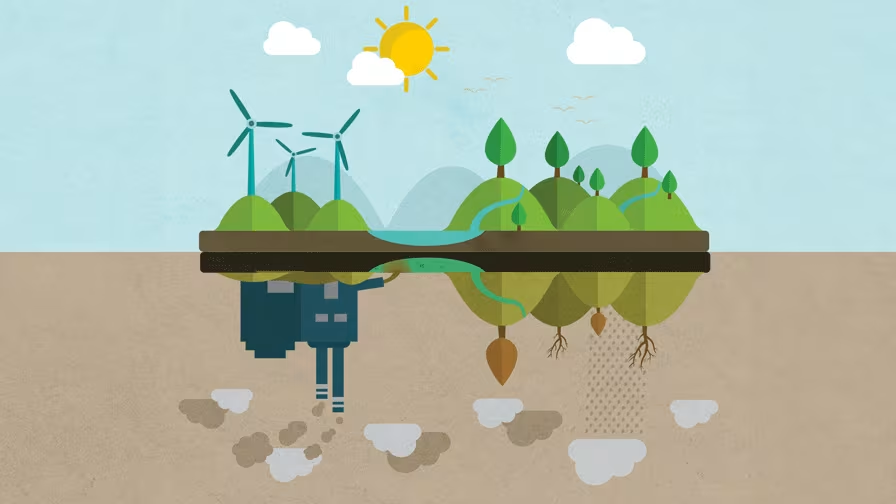
Think at London Business School
Decarbonisation on the home front
Four years ago Tom Gosling and his family made a pledge to cut their carbon emissions in half. Here’s his update, along with some tips
By Tom Gosling
Find out morePlease enter a keyword and click the arrow to search the site
Or explore one of the areas below
Laidlaw scholar Jiwan Dillon plans to take skills from her MBA course and use them to help transform farming in northern India

Growing up on a farm in Punjab, Jiwan Dhillon was immersed in the world of agriculture. Little did she know as a small girl that she would one day use technology and business skills to attempt to transform the way farming is done in northern India. But that is her current plan, deploying the skills she is learning as an MBA student at London Business School.

Photo: Jiwan Dillon, MBA student at London Business School
“My dad is a farmer and most of my family works in farming,” Jiwan explains. “Punjab is a very agricultural state. Even my husband works in agriculture. But there are a lot of problems with the sector. In northern India, two crops tend to be grown: rice and wheat. Rice is a very water intensive crop, but water levels are reducing. There’s a pressing need to diversify crop choices.”
Climate change is also causing temperatures to rise in the region, which is turning the land into a desert. A side effect of all of these challenges currently affecting farming, is that many young people are deciding not to pursue a career in agriculture and are moving away from the places where they grew up and finding jobs in cities. Jiwan is keen to buck this trend and believes technology may hold some of the answers to India's farming crisis. She points to agritech, the application of technology and digital solutions to farming and food production.
This interest in innovation started early on, with Jiwan studying for a technology degree, then working for Goldman Sachs and Google in India in tech-related roles. The idea of pivoting towards business with a focus on agriculture enhanced by tech has been on her mind for a long time. Her longer-term intention is moving back to India from London and helping farmers work the land more profitably, efficiently and sustainably.
It was this desire to develop her skills in business that led Jiwan to the MBA course at London Business School, as she felt it would be one of the quickest ways to gain the right education and experience, as well as building useful networks and gaining a global perspective. She started the course this summer.
She says: “I applied for the MBA because I wanted a global level of exposure and London Business School’s curriculum provided that, as well as being very well-rounded. It takes in core business skills, along with technology and sustainability issues. The programme has good representation from different countries, which maximises opportunities to learn from one’s peers. The School also has a very strong alumni network all over the world, including in India. I plan to go back home after my MBA, so having that global network of people will be invaluable.”
Another big attraction was the fact that London Business School offers a range of scholarships. She applied for the Laidlaw Women's Leadership Fund, which is awarded to 20 women each year to help them to receive a top-tier business education. Having received a full scholarship, Jiwan believes the financial boost will make a dramatic difference to her experience of studying and her prospects for the future.
“The scholarship is a reflection of how the school invests in people,” Jiwan adds. “It makes a huge difference while I’m here, but it will also help me to be more free in my choices when I’m looking for jobs post MBA. I’m still exploring my options and am not sure what I will do, but I’m considering roles in the investing space as an initial step, perhaps private equity or venture capital. I think I may work with funds focused on tech, specifically those with a percentage of their investment in agriculture. What interests me is being in an environment where you get to see all the stages of the lifecycle of a business.”
Discover fresh perspectives and research insights from LBS
"Agritech could connect farmers to new markets where they can explore alternative crops, which are more profitable and reduce their exposure to risk."
While the effects of climate change are being acutely felt all over the world and in her home region, Jiwan remains optimistic that the application of technology could bring about change to improve how land is cultivated, how food is produced, as well as having the potential to make farming a viable living for generations to come.
“The crops currently grown in the Punjab are not so lucrative for farmers, which means the sector isn’t very profitable. Farmers face a lot of risk,” she says. “Then, there are the effects of climate change, as well as pollution-related problems, such as farmers burning stubble after harvest. It’s something that’s been done for generations, but it leads to severe smog all over northern India.
“When you look at all of these things, the future for agriculture can seem bleak,” Jiwan adds. “But I believe if we get more technology and innovation into agriculture, we can bring about real change. Agritech could connect farmers to new markets where they can explore alternative crops, which are more profitable and reduce their exposure to risk. There’s also the possibility of building an intelligence repository to help farmers make informed crop choices or learn how to raise crops more efficiently and sustainably. Ultimately, I’d like to build my own agritech venture.”
“I feel very fortunate to have the opportunity to study at a world-class business school and learn skills which I can take home and put to such an important use”
Jiwan has been struck both by the diversity of background and geographic origins of many London Business School students, bringing a vast range of perspective and experience to her studies. But she also comments on how passionate most of her peers are about climate change and how it will affect all their future careers, regardless of the specific fields they plan to enter. In particular, she has been surprised to find others who are specifically interested in agriculture, as she is.
She says: “Being on the course has really improved my cultural knowledge. But, since I’ve been at the School, I’ve also met a lot of people who are willing to engage in sustainability and social impact issues. It’s very exciting. In my cohort on the MBA alone, there are two or three others who are interested in the future of agriculture and would like to work in the sector. It’s really fascinating to see people from different parts of the world who face related challenges in this area and who, like me, want to work to address them.”
Jiwan admits she found the months since she started her MBA to be a steep learning curve, but she has felt very supported by London Business School and her peers. She concludes: “I’ve learned so much already. It’s a lot to adapt to and absorb, but there’s been a lot of support. One example is the career centre, which is amazing. They hold lots of events, but it all feels done in a very timely manner, with students being pointed to resources that they can leverage at just the right moment. Most of all, I feel very fortunate to have the opportunity to study at a world-class business school and learn skills which I can take home and put to such an important use.”

Think at London Business School
Four years ago Tom Gosling and his family made a pledge to cut their carbon emissions in half. Here’s his update, along with some tips
By Tom Gosling
Find out more
Think at London Business School
Do private equity firms merely make ESG claims, or do claims translate into better portfolio company performance?
By Jonathan Braude
Find out more
Think at London Business School
Meet the Energy & Environment Club presidents applying their learnings to one of the most pressing issues in our time: climate change
By Jenny Little
Find out more